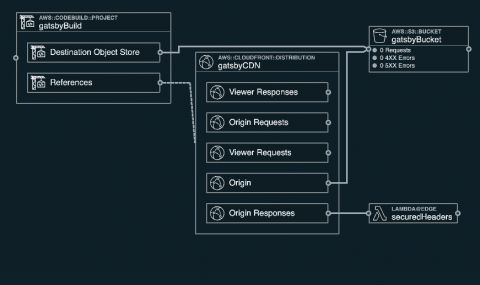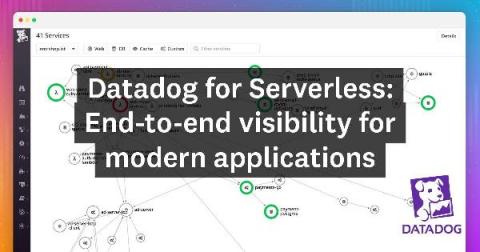Operations | Monitoring | ITSM | DevOps | Cloud
Serverless
The latest News and Information on Serverless Monitoring, Management, Development and related cloud technologies.
Debugging AWS Lambda Timeouts
Some time ago, an ex-colleague of mine at DAZN received an alert through PagerDuty. There was a spike in error rate for one of the Lambda functions his team looks after. He jumped onto the AWS console right away and confirmed that there was indeed a problem. The next logical step was to check the logs to see what the problem was. But he found nothing. And so began an hour-long ghost hunt to find clues as to what was failing and why there were no error messages.
Putting the stack in JAMstack
Stackery is focused on helping developers leverage the power of AWS managed services. Our secure delivery platform is used to ship Lambda functions, HTTP Gateways, Aurora database clusters, and many more services which you can view usage of in Anna’s blog on the topic. Recently, I noticed an emerging workload running on our platform: the JAMstack. That’s a term for web applications composed primarily of JavaScript, APIs, and Markup.
Dashbird turns 3: reflecting on the journey, challenges and milestones of the past year
Another year of empowering DevOps teams has passed and what a year it’s been! I’d like to take a moment to reflect on the journey, the milestones and challenges this past year encompassed. The last year has been our most transformational to date. We’ve had a huge amount of ups and downs and I’m incredibly proud to say that we got through it and our organization is more resilient, more aligned in our vision and closer as a result.
Introducing, Dashbird Atlas
We’re pleased and honored to be part of the Serverless revolution - continuously innovating to make processes and day-to-day tasks for serverless users more efficient, seamless and enjoyable. So let’s get right into the new and exciting stuff now! Earlier this year, Dashbird launched the very well-received Insights Engine designed to encourage a proactive approach when building and operating serverless applications.
A Simple Introduction to AWS Step Functions
Step Functions is a managed service by AWS that implements the Finite-state Machine (FSM) model. You coordinate multiple AWS services into serverless workflows so you can build and update apps quickly. Using Step Functions, you can design and run workflows that stitch together services such as AWS Lambda and Amazon ECS into feature-rich applications. You can read Wikipedia’s definition of a Finite-state Machine, but I think you’ll like the next section more. Keep on reading.
Cutting Step-Functions Costs on Enterprise-Scale Workflows
AWS Step Functions is a great service for orchestrating multi-step workflows with complex logic. It’s fast to implement, relatively easy to use and just works. The problem is its price. For relatively low-scale projects, it’s a feasible solution. But for large-scale, enterprise-grade orchestration with hundreds of millions of processes, each with dozens of steps, it can be cost prohibitive.
Winning with Application Insights Logging
Insights for AWS Kinesis and Step Functions now supported by Dashbird
August 2020 marks 3 years of Dashbird and empowering serverless DevOps teams to fully understand their complex serverless infrastructures by enabling them to get full observability and insights into its performance. This birthday month, we have plenty of surprises, giveaways, and goodies in our sleeve over the next few weeks, so sign up for our newsletter to be the first one to know.
Zero instrumentation serverless observability with AWS SAM and CDK integrations
As organizations build out their serverless footprint, they might find themselves managing hundreds or thousands of individual components (e.g., Amazon S3 buckets, Amazon DynamoDB tables, AWS SQS queues) for just a single application. At the same time, performance issues can crop up at any of these points, which means that having access to detailed observability data from your serverless functions is crucial for effective troubleshooting.









